Questionour sow is pregnant. she started to show about 3 to 4 weeks ago, i feel them kick, i know that they have long gestation cycle but HOW MUCH LONGER HAS SHE GOT TO GO?
so i know when she is about to give birth.
thanks
AnswerHi Tia,
A female guinea pig must be under 6 months old when she has her first litter, otherwise her pelvic bones will have fused together and she will struggle to deliver the litter. If your guinea pig is older than this (and it is her first pregnancy) you will need to take extra precautions and will need to have the vet on the phone during the birth, perhaps even in your house.
The signs of pregnancy are similar as with humans; she'll put on weight, eat more, drink more, and get a bit lazy! The gestation period of guinea pigs is 68-72 days, and if you can feel the babies moving around, she is probably in the later stages of her pregnancy. It is best not to handle her unncessarily during this stage(just when you clean out her cage) as just like a human, she'll be feeling very uncomfortable.
Try not to worry too much. Although, as with any animal, birth can be difficult for guinea pigs, the babies are usually born without any complications, especially if the pregnant sow is happy and healthy. Difficulties in pregnancy and birth are more common in older sows.
If you have a male guinea pig living with your pregnant guinea pig, you will need to move him to a separate cage as he will be able to mate with your guinea pig and her female babies as soon as she has given birth! It is not a good idea to let this happen, as sows do not often handle two litters being born is quick succession very well. He will also continue to mate with your female guinea pig, even though she's already pregnant, which will be stressful and tiring for her.
Put some extra hay in your piggy's cage so that she has somewhere comfortable to lay when she has her babies. She will probably have the babies at night, or any other time you're not watching, so be prepared to open the cage any day now and see mum and 1-4 tiny piggies looking up at you! If you are around when your guinea pig gives birth, don't disturb her, but stay within earshot so you can hear if she is struggling, and have your nearest vet's phone number at the ready.
When the babies are born, they will look just like mini versions of their mum! Not necessarily the same colour, but they are born with hair unlike many other small mammals as in the wild they need to be ready to run from predators from day one! Avoid touching the babies for the first few days (although this will be tempting, as they are very cute) as if you pass your scent onto them, their mother may reject them, and hand-rearing a guinea pig is not easy! You can and should watch them, though. Make sure she isn't too rough when she is cleaning them, and check that all babies get a more or less equal share of her milk. A female guinea pig has only 2 nipples, so if she has 3 or more babies, they will have to take turns to suckle!
The babies can eat solid food from day one so start putting extra veggies in the cage once they've been born, but they will also drink their mother's milk until they are around 3 weeks old. Once they are weaned, you will need to move any males to a separate cage by the time they are 4 weeks old, as at 4 weeks they reach sexual maturity and will be able to get their mother and sisters pregnant! It can be tricky to tell the gender of baby guinea pigs, but by the age of 2 weeks you will be able to tell for sure. If you cannot keep all the babies and need to rehome some, make sure they go in same-sex pairs, and do not give them away or sell them until they are 6 weeks of age.
I've never knowingly had a pregnant guinea pig (my two gave birth unexpectedly), so I don't know much in terms of special things you should feed her. Just make sure you give her a little extra of everything, and keep a careful eye on her. Guinea Pig guru Peter Gurney has some guinea pig health pages at the following address in case you have any problems: http://www.oginet.com/pgurney/index.html
If you have any other questions about the pregnancy, the babies, or guinea pig health/diet in general, please don't hesitate to get in touch.
Good luck and best wishes,
Jenny.

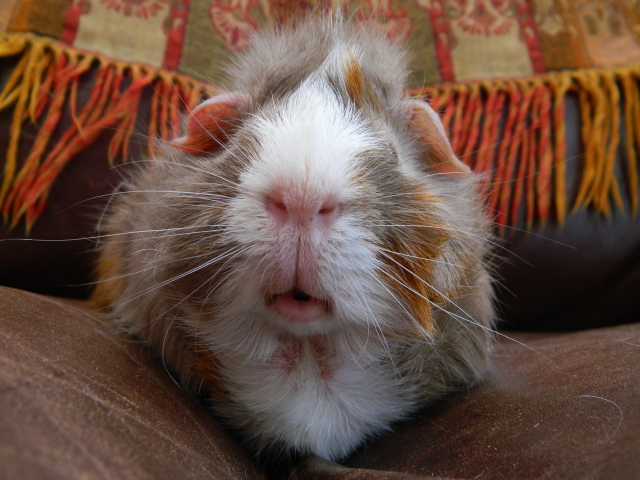 Guinea Pig Skin
Question
This is what it looks
Rory my Abyssini
Guinea Pig Skin
Question
This is what it looks
Rory my Abyssini
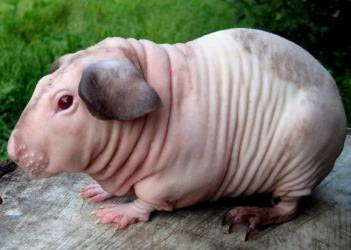 Guinea Pig Genes?
QuestionI have a male Dalmatian guinea pig, and I have
Guinea Pig Genes?
QuestionI have a male Dalmatian guinea pig, and I have
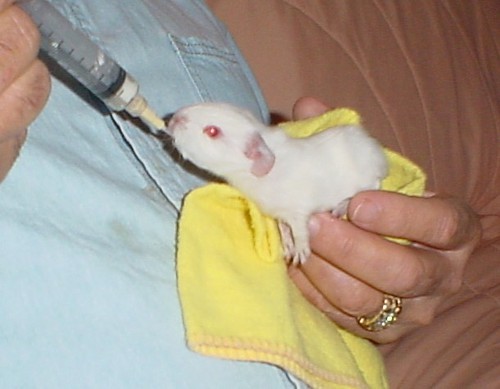 Baby guinea pig hand rearing?
QuestionOk well,one of my guinea pigs had babies recent
Baby guinea pig hand rearing?
QuestionOk well,one of my guinea pigs had babies recent
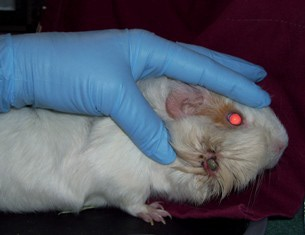 abscess is bleeding
QuestionHi Pat,
My guinea pig, Pogo, got an abscess a f
abscess is bleeding
QuestionHi Pat,
My guinea pig, Pogo, got an abscess a f
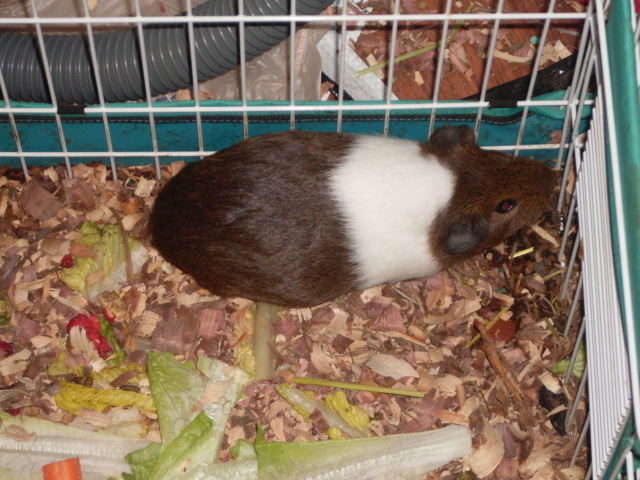 guinea pig brith
QuestionQUESTION: hi my name is alex and i have a guine
guinea pig brith
QuestionQUESTION: hi my name is alex and i have a guine